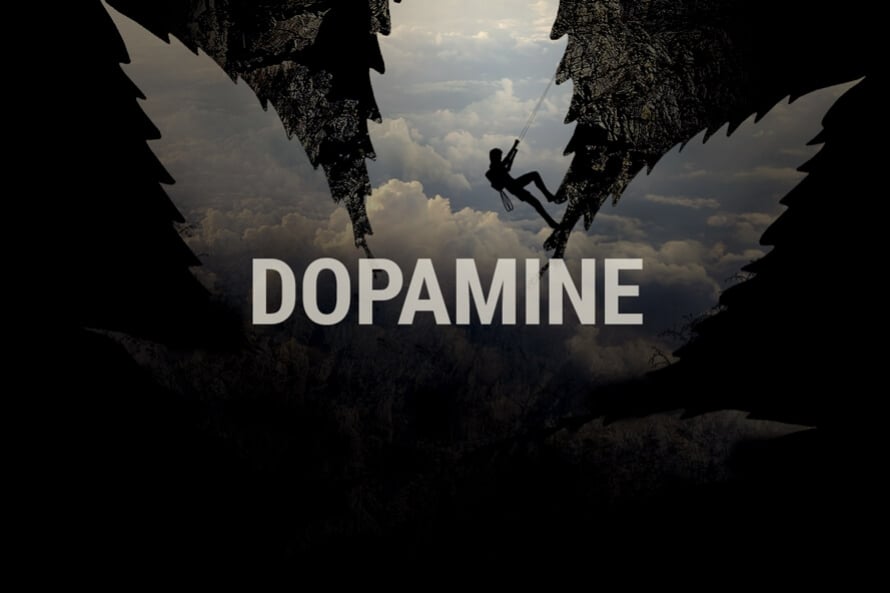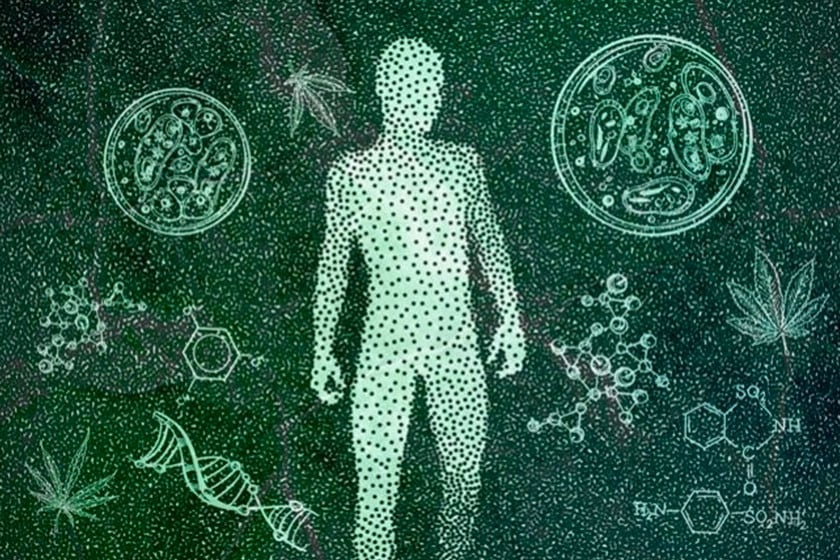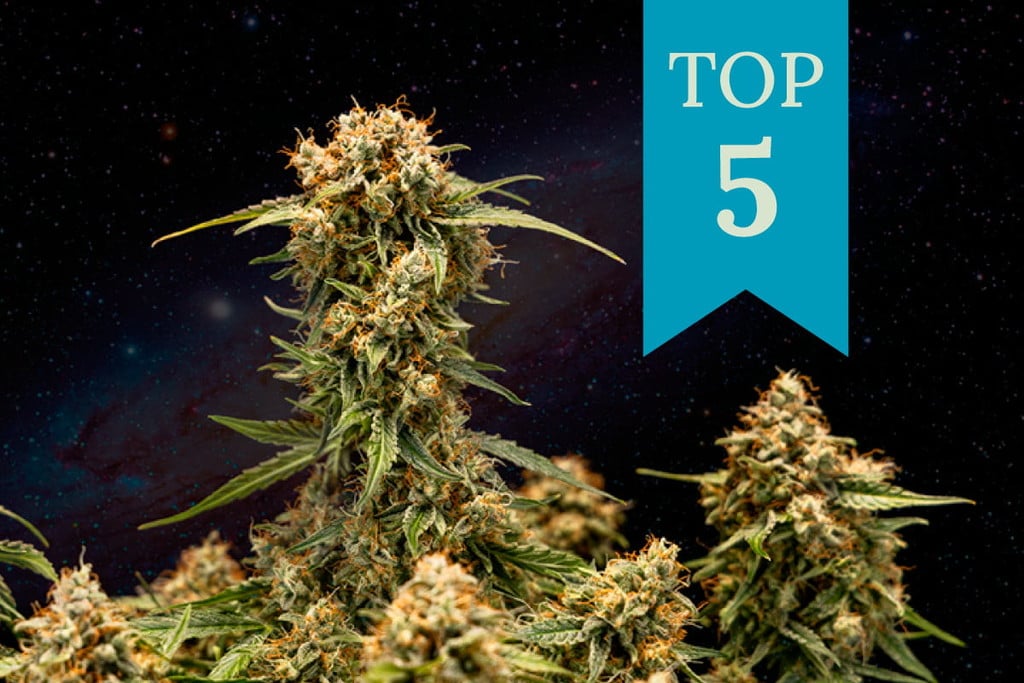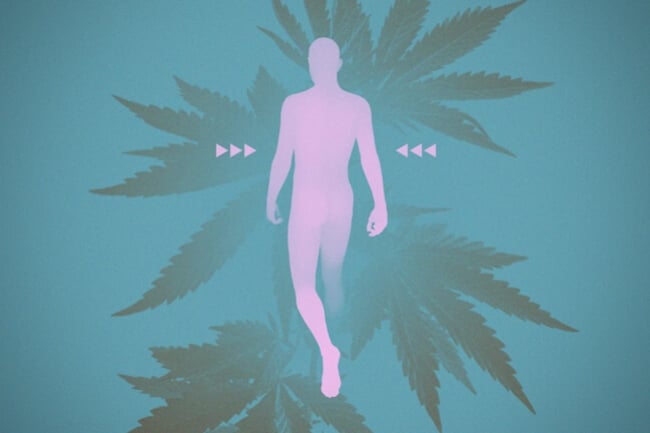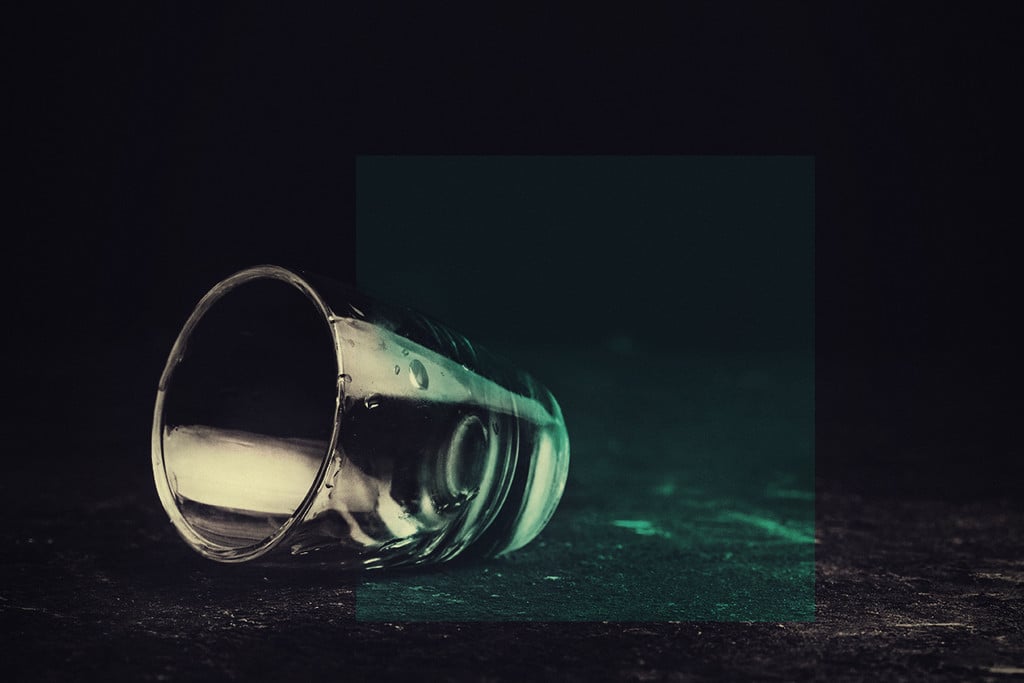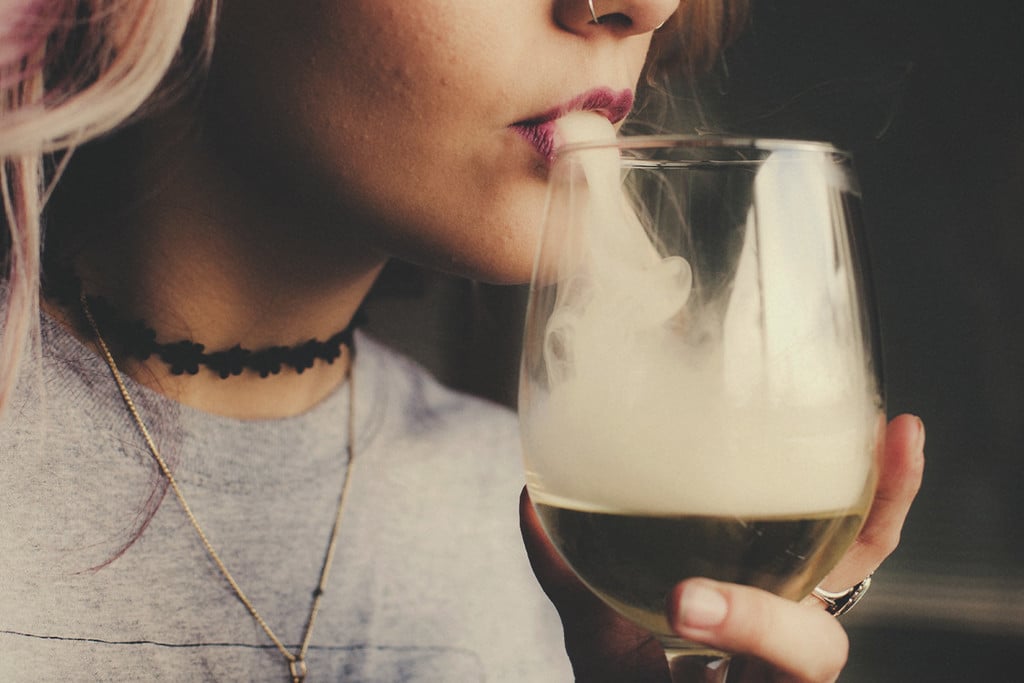.
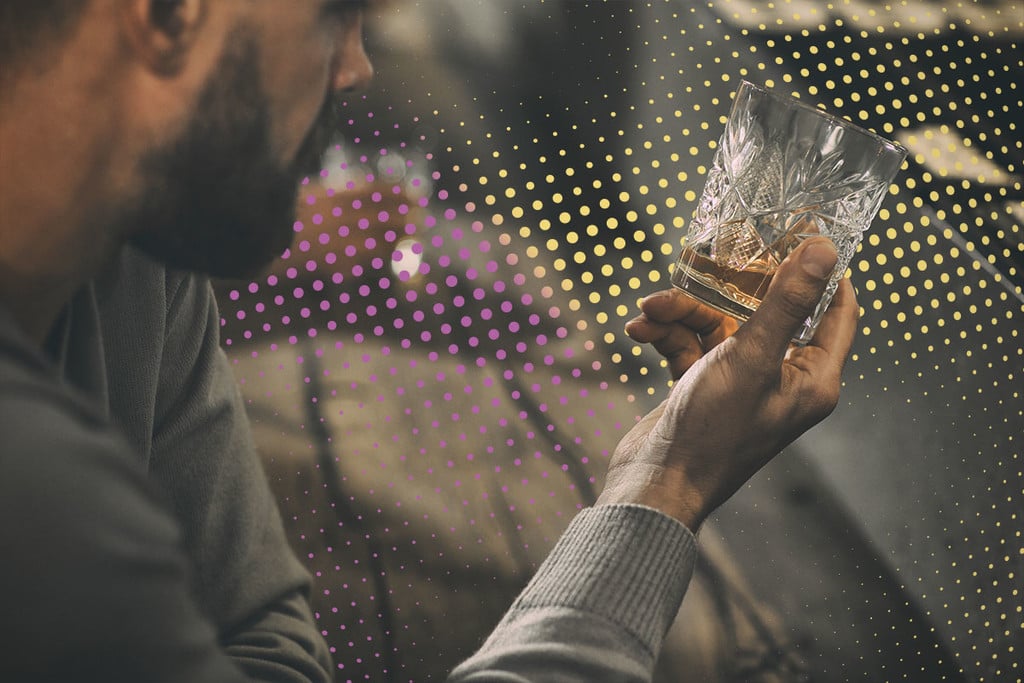
Can Marijuana or CBD Help With Alcohol Withdrawal?
For many of us, quitting alcohol simply involves finishing our last beer and calling it a day. However, things aren't so simple with heavy drinkers. After their last drink, they experience symptoms that vary in severity, from nausea and sleeping issues to hallucinations and convulsions. Can cannabis help to alleviate alcohol withdrawal? Find out.
We all know that hard drugs come with intense withdrawal symptoms, however, many of us overlook those that come with quitting booze. Going cold turkey can cause severe symptoms and even result in a life-threatening condition known as delirium tremens. Can cannabis help heavy drinkers put down the bottle while minimising the effects of withdrawal? Find out below.
Contents:
What Is Alcohol Withdrawal?
Alcohol withdrawal, also known as alcohol withdrawal syndrome (AWS), occurs when somebody who drinks heavily stops abruptly or drastically reduces their alcohol intake. As a depressant, alcohol changes the neurochemical balance in the brain in two primary ways[1].
First, alcohol increases the effects of gamma-aminobutyric acid (GABA) at GABA receptors. As the major inhibitory neurotransmitter in the brain, GABA reduces impulses between neurons; increased levels underpin the relaxing and anxiety-alleviating effects of drinking. Alcohol further decreases neural activity by inhibiting glutamate, the major excitatory neurotransmitter. Over time, the continuous and frequent use of alcohol causes adaptive changes[2] in the balance between these key neurotransmitters, including the downregulation of GABA inhibition, which leads to a surge in glutamate release when heavy drinkers suddenly stop. Increased levels of glutamate, without sufficient GABA to tame the excess, lead to hyper-excitability, resulting in potential nerve damage[3] and a range of uncomfortable symptoms.

Alcohol Withdrawal vs Alcohol Use Disorder vs Alcoholism
AWS refers to a set of symptoms that accompany sudden abstinence from alcohol in heavy drinkers. The syndrome comes about due to chemical changes in the brain and causes symptoms that vary in severity, from mild anxiety to seizures.
Rather than a collection of symptoms, both alcohol use disorder (AUD) and alcoholism are two terms used interchangeably to refer to harmful patterns of drinking. However, differences exist between the terms AUD and alcoholism. AUD serves as a clinical diagnosis defined by the Diagnostic and Statistical Manual of Mental Disorders 5 (DSM-5). To formulate a diagnosis, clinicians have to identify at least two out of eleven criteria in patients, including:
- Drinking more than intended
- Feeling incapable of reducing alcohol consumption
- Falling ill for a long period of time due to excess alcohol consumption
- Inability to concentrate because of alcohol cravings
- Inability to care for family or uphold responsibilities
- Continuing to drink despite problems with family and friends
- Decreased participation in activities once thought of as important
- Experiencing dangerous situations because of alcohol use
- Continuing to drink despite existing health problems such as anxiety and depression
- Consuming more alcohol due to developed tolerance
- Experiencing withdrawal symptoms
Clinicians then diagnose the severity of AUD based on how many of these points patients present:
- Mild: 2–3 points
- Moderate: 4–5 points
- Severe: 6 or more points
Whereas AUD is a clinical diagnosis, the non-medical term “alcoholism” refers to alcohol dependence in a general sense, outside of a medical diagnosis.
Symptoms of Alcohol Withdrawal
The symptoms of alcohol withdrawal syndrome vary in severity, and appear anywhere from six hours to several days after a person stops drinking. The symptoms often become more pronounced over the first 2–3 days following abstinence, and include:
|
|
During severe cases of alcohol withdrawal syndrome, patients can develop a life-threatening condition known as delirium tremens (DT). This results from overactivity of the central nervous system and manifests in the following symptoms:
|
|
Cannabis and Alcohol Withdrawal
So, where does cannabis fit into the picture? Can weed help with alcohol withdrawal? Or could hitting a joint or vape make things worse? Limited research exists around the use of cannabis in this context, though early studies have explored the efficacy of its constituents in reducing alcohol intake and negating the symptoms of alcohol withdrawal. To get an idea of how cannabis might modulate neurotransmitter firing in a way that buffers against AWS symptoms, we need to briefly address the endocannabinoid system (ECS).
The ECS plays a regulatory role and helps to keep other physiological systems in balance. It consists of three core parts: endocannabinoids (signalling molecules), receptors (CB1 and CB2), and enzymes that build and deconstruct endocannabinoids. All of these components also belong to a much more complex system known as the endocannabinoidome (eCBome). In the brain, ECS components are found on and within neurons, where they help to govern the flow of neurotransmitters including GABA and glutamate.
Much like other neurotransmitters, including dopamine and serotonin, endocannabinoids can travel in an anterograde fashion, meaning they cross the synaptic cleft from presynaptic neurons to postsynaptic neurons. However, they feature a unique ability that enables them to control incoming traffic to postsynaptic neurons; they travel backwards across the synaptic cleft, bind to the CB1 receptor on presynaptic neurons, and inhibit the release[4] of both GABA and glutamate.
Endocannabinoids drive homeostasis in the central nervous system through CB1 receptor activation. Cannabinoids derived from cannabis, including THC, are also able to bind to and activate this site. This presents the possibility that certain cannabinoids could tame the glutamate surge that underpins the symptoms of alcohol withdrawal syndrome. Research[5] conducted in 2016 suggests that THC, the main psychoactive constituent in cannabis, depresses glutamate synaptic transmission through its interaction with CB1. Future studies will hopefully identify other cannabinoids capable of inhibiting glutamate, and the viability of this interaction in helping to alleviate alcohol withdrawal symptoms.
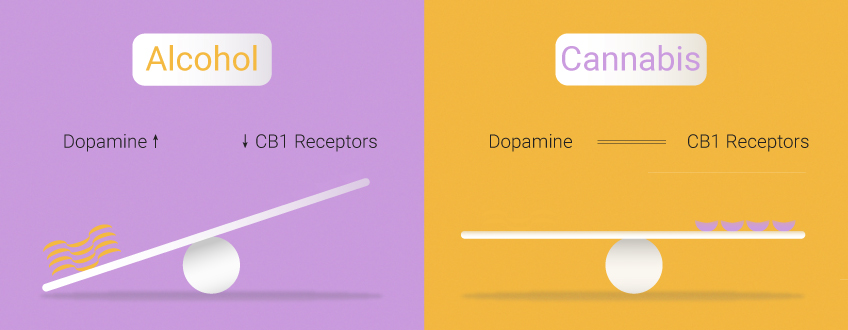
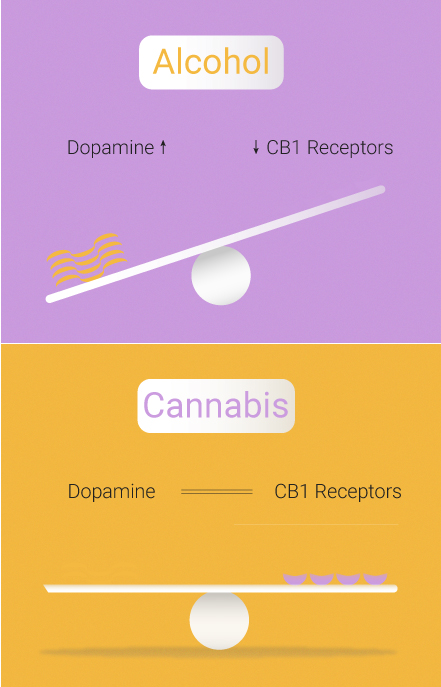
Abstinence vs Harm Reduction
Before we delve further into the research surrounding alcohol withdrawal and specific cannabinoids, it’s important to highlight the distinction between abstinence and harm reduction. The approach of abstinence—the mainstay of numerous rehabilitation programmes—requires users to completely abandon the use of alcohol and drugs. While this strategy has helped countless people beat addiction, it doesn’t always work. For example, some users find success in swapping out a more harmful substance with a less dangerous one.
As opposed to abstinence, harm reduction centres around educating users about safer drug use. This approach aims to assist users by informing them about the safest ways to take drugs and methods to decrease the amount they take and the damage done by consumption. Take opioid addiction, for example. Some researchers suggest that physicians should consider prescribing[6] cannabis in place of these highly addictive painkillers as a form of harm reduction.
THC and Alcohol Withdrawal
The research surrounding THC for alcohol withdrawal is limited. A 2014 review[7] considers cannabis as a potential substitute medication for alcohol, concluding that weed could serve as a substitute, but that robust trials are needed to determine its efficacy. The review also mentions that cannabis might prove a safer option than current substitute drugs, including benzodiazepines and other pharmaceuticals.
While human trials pitching THC against alcohol withdrawal are generally lacking, studies have tested the cannabinoid against symptoms of the condition, including nausea and insomnia, as well as markers of pathophysiology, such as inflammation.
| Inflammation | A study[8] performed on mice reports an increase in inflammatory cytokines, including tumour necrosis factor-alpha (TNFa), in the central nervous system following the abrupt cessation of alcohol intake. These findings indicate that suddenly abstaining from alcohol gives rise to an inflammatory state in certain regions of the brain. Researchers have tested an array of cannabinoids against inflammation. A study[9] conducted in 2020 found that THC failed to reduce proinflammatory cytokines alone, but might reduce their action when administered alongside CBD. However, other animal models of neuroinflammation have assessed the ability of THC to suppress proinflammatory cytokines[10], such as interleukin-12 (IL-12). |
| Pain | Patients going through alcohol withdrawal often report pain as a symptom, especially stomach ache. Because the ECS plays an important role in neurotransmission[11] and pain signalling, researchers are keen to find out if THC can help to alleviate this symptom. Several studies[12] have so far administered THC and other cannabinoids in models of chronic pain. |
| Nausea and vomiting | Both nausea and vomiting are symptoms of withdrawal and detoxification. As such, scientists are exploring the role of cannabinoids in reducing chemotherapy-induced nausea and vomiting. Dronabinol and nabilone, two synthetic versions of THC, have received Food and Drug Administration (FDA) approval[13] for this purpose. |
| Insomnia | Insomnia also presents as a common symptom in patients withdrawing from alcohol. Anecdotally, many cannabis users claim that certain cultivars produce relaxing effects that are ideal before bed. Furthermore, research shows that THC might reduce the amount of time[14] that users spend dreaming, suggesting it could result in more restful sleep. |
| Inflammation |
| A study[8] performed on mice reports an increase in inflammatory cytokines, including tumour necrosis factor-alpha (TNFa), in the central nervous system following the abrupt cessation of alcohol intake. These findings indicate that suddenly abstaining from alcohol gives rise to an inflammatory state in certain regions of the brain. Researchers have tested an array of cannabinoids against inflammation. A study[9] conducted in 2020 found that THC failed to reduce proinflammatory cytokines alone, but might reduce their action when administered alongside CBD. However, other animal models of neuroinflammation have assessed the ability of THC to suppress proinflammatory cytokines[10], such as interleukin-12 (IL-12). |
| Pain |
| Patients going through alcohol withdrawal often report pain as a symptom, especially stomach ache. Because the ECS plays an important role in neurotransmission[11] and pain signalling, researchers are keen to find out if THC can help to alleviate this symptom. Several studies[12] have so far administered THC and other cannabinoids in models of chronic pain. |
| Nausea and vomiting |
| Both nausea and vomiting are symptoms of withdrawal and detoxification. As such, scientists are exploring the role of cannabinoids in reducing chemotherapy-induced nausea and vomiting. Dronabinol and nabilone, two synthetic versions of THC, have received Food and Drug Administration (FDA) approval[13] for this purpose. |
| Insomnia |
| Insomnia also presents as a common symptom in patients withdrawing from alcohol. Anecdotally, many cannabis users claim that certain cultivars produce relaxing effects that are ideal before bed. Furthermore, research shows that THC might reduce the amount of time[14] that users spend dreaming, suggesting it could result in more restful sleep. |
CBD and Alcohol Withdrawal
In contrast to THC, CBD is not an agonist of the CB1 receptor, and therefore produces no psychotropic effects. However, the molecule influences ECS enzyme activity and binds to an array of eCBome receptors. But what does this mean for alcohol withdrawal symptoms?
More research exists around CBD and the symptoms of the syndrome than with THC, but human trials are still lacking. A review[15] published in 2019 analises the available data, including preclinical animal models, and focuses on the following outcome measures:
- Neuroprotective effects against adverse alcohol consequences
- Stress-elicited alcohol-seeking
- Alcohol self-administration
- Withdrawal-induced convulsions
The review also assesses human studies, and notes that CBD appears well-tolerated. Interestingly, research indicates that CBD exerts direct actions[16] at the GABA-A receptor, a site involved in anticonvulsant and anxiolytic (anti-anxiety) effects, and a receptor targeted by drugs used to treat alcohol withdrawal symptoms. However, researchers have found that CBD binds to a different site on these receptors.
Much like THC, the endocannabinoid anandamide also binds to the CB1 receptor and helps to govern neurotransmission. By competing[17] with anandamide at fatty acid-binding proteins (FABPs), CBD may help to temporarily raise anandamide levels and prevent its breakdown by the enzyme fatty acid amide hydrolase (FAAH).
| Alcohol-Related Liver Damage | As though withdrawal symptoms aren't enough to contend with, some patients going through alcohol withdrawal also have to deal with liver damage caused by excessive drinking. As the primary organ of detoxification, the liver helps to break down alcohol, and facilitates its removal from the body. However, over time, frequent exposure to booze can cause liver damage in the form of scarring and buildup of fatty deposits (steatosis) that stop the organ from functioning properly. Because CB1 receptors might contribute to alcohol-induced liver disease, researchers are looking to see[19] if modulation of this receptor can help to offset the condition. |
| Alcohol Cravings | Research has examined the effects of CBD on alcohol cravings in animal models. However, cannabis produces 100 other cannabinoids. Scientists have also turned their attention to caryophyllene (both a terpene and cannabinoid) as another means of potentially helping to curb alcohol use. This molecule, found in abundance in cannabis and other herbs, targets the CB2 receptor of the ECS. Researchers are exploring its effects on inflammation, and also assessing if it helps to reduce voluntary alcohol intake[18] in animal models. |
| Alcohol-Related Liver Damage |
| As though withdrawal symptoms aren't enough to contend with, some patients going through alcohol withdrawal also have to deal with liver damage caused by excessive drinking. As the primary organ of detoxification, the liver helps to break down alcohol, and facilitates its removal from the body. However, over time, frequent exposure to booze can cause liver damage in the form of scarring and buildup of fatty deposits (steatosis) that stop the organ from functioning properly. Because CB1 receptors might contribute to alcohol-induced liver disease, researchers are looking to see[19] if modulation of this receptor can help to offset the condition. |
| Alcohol Cravings |
| Research has examined the effects of CBD on alcohol cravings in animal models. However, cannabis produces 100 other cannabinoids. Scientists have also turned their attention to caryophyllene (both a terpene and cannabinoid) as another means of potentially helping to curb alcohol use. This molecule, found in abundance in cannabis and other herbs, targets the CB2 receptor of the ECS. Researchers are exploring its effects on inflammation, and also assessing if it helps to reduce voluntary alcohol intake[18] in animal models. |
Cannabis Consumption and Alcohol Withdrawal
Can smoking weed help with alcohol withdrawal? Science hasn’t figured that out yet, but that hasn’t stopped people from using the herb for this purpose. There are several different ways to consume cannabis, and hopefully, studies will eventually determine the route of administration and dosing guidelines best suited to address alcohol withdrawal syndrome. In the meantime, check out the main ways that people use cannabis below.
🍃 Smoking
Many marijuana users choose to smoke cannabis flowers. Some buds offer high levels of THC, some CBD, and some equal quantities of both. When smoking, cannabinoids rapidly enter the bloodstream via the alveoli of the lungs. Despite this fast onset, smoking exposes users to a range of health risks, especially those of a respiratory nature.
💨 Vaping
Like smoking, vaping also offers a rapid onset of effects. However, vaporizers use lower temperatures to liberate cannabinoids, terpenes, and other constituents as opposed to combusting them. This may pose less of a risk to health, but it doesn’t remove the risk entirely.
🍬 Edibles
Edibles, including gummies, autumn under the umbrella of oral administration. Eating cannabis-infused foods sends cannabinoids through first-pass metabolism. During this process, THC is converted into a much more potent molecule in the liver. As such, edibles offer a more intense psychoactive experience that takes longer to set in, but also lasts much longer. While oral administration removes the risks associated with smoking and vaping, cannabinoids have poor bioavailability, and a large concentration doesn't make it into the bloodstream.
Mixing Cannabis and Alcohol
When discussing alcohol and cannabis, people often wonder if they can take the two together. While it’s possible to enjoy a cold beer alongside a joint, things can easily get out of hand. Drinking alcohol significantly increases THC levels in the bloodstream, resulting in a more pronounced effect. Add too many drinks to the equation, and you can expect to find yourself disoriented and feeling sick. If you want to combine the two, go low and slow—and most importantly, know your limits.
What about mixing CBD with alcohol? Well, a rather aged 1979 study examines the interaction between CBD and alcohol[20] in humans. The authors claim that CBD lowered blood alcohol level; however, participants also experienced impairments in motor performance and alterations in their perception of time compared to taking CBD alone. As with THC, proceed low and slow, and see how your body reacts to taking these substances simultaneously.
Replacing Alcohol With Weed
Can weed help alcohol withdrawal? Does cannabis serve as an effective drug substitute? We don’t yet have the answers to these questions. We know that the ECS plays a key role in nervous system firing, and we know that cannabis compounds are capable of interfacing with this system. For now, treatments for these symptoms remain limited, and anybody suddenly quitting booze after heavy drinking is in for a rough time. We require robust human trials to determine if cannabis can help people to reduce their alcohol intake, quit altogether, and minimise the severity of alcohol withdrawal syndrome symptoms.
Medical DisclaimerInformation listed, referenced or linked to on this website is for general educational purposes only and does not provide professional medical or legal advice.
Royal Queen Seeds does not condone, advocate or promote licit or illicit drug use. Royal Queen Seeds Cannot be held responsible for material from references on our pages or on pages to which we provide links, which condone, advocate or promote licit or illicit drug use or illegal activities.
Please consult your Doctor/Health care Practitioner before using any products/methods listed, referenced or linked to on this website.
- https://pubs.niaaa.nih.gov/publications/arh22-1/13-24.pdf
- Alteration of Glutamate/GABA Balance During Acute Alcohol Withdrawal in Emergency Department: A Prospective Analysis | Alcohol and Alcoholism | Oxford Academic https://academic.oup.com
- https://pubs.niaaa.nih.gov/publications/arh22-1/13-24.pdf
- https://www.intechopen.com/chapters/78043
- Effect of cannabis on glutamate signalling in the brain: A systematic review of human and animal evidence - PubMed https://pubmed.ncbi.nlm.nih.gov
- Prescribing cannabis for harm reduction | Harm Reduction Journal | Full Text https://harmreductionjournal.biomedcentral.com
- Can Cannabis be Considered a Substitute Medication for Alcohol? - PMC https://www.ncbi.nlm.nih.gov
- Temporal changes in innate immune signals in a rat model of alcohol withdrawal in emotional and cardiorespiratory homeostatic nuclei | Journal of Neuroinflammation | Full Text https://jneuroinflammation.biomedcentral.com
- The Effects of Cannabinoids on Pro- and Anti-Inflammatory Cytokines: A Systematic Review of In Vivo Studies - PubMed https://pubmed.ncbi.nlm.nih.gov
- The Effects of Cannabinoids on Pro- and Anti-Inflammatory Cytokines: A Systematic Review of In Vivo Studies - PubMed https://pubmed.ncbi.nlm.nih.gov
- The role of the endocannabinoid system in pain - PubMed https://pubmed.ncbi.nlm.nih.gov
- An experimental randomized study on the analgesic effects of... : PAIN https://journals.lww.com
- Cannaboinoid Antiemetic Therapy - StatPearls - NCBI Bookshelf https://www.ncbi.nlm.nih.gov
- Effect of illicit recreational drugs upon sleep: cocaine, ecstasy and marijuana - PubMed https://pubmed.ncbi.nlm.nih.gov
- https://onlinelibrary.wiley.com/doi/abs/10.1111/acer.13964
- The direct actions of cannabidiol and 2-arachidonoyl glycerol at GABA A receptors - PubMed https://pubmed.ncbi.nlm.nih.gov
- Fatty Acid-binding Proteins (FABPs) Are Intracellular Carriers for Δ9-Tetrahydrocannabinol (THC) and Cannabidiol (CBD) - PMC https://www.ncbi.nlm.nih.gov
- The cannabinoid receptor 2 agonist, β-caryophyllene, reduced voluntary alcohol intake and attenuated ethanol-induced place preference and sensitivity in mice - PubMed https://pubmed.ncbi.nlm.nih.gov
- https://www.sciencedirect.com/science/article/pii/S0168827813002122
- Interaction of cannabidiol and alcohol in humans - PubMed https://pubmed.ncbi.nlm.nih.gov


























